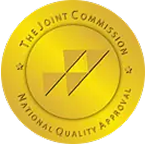How Long Does Alcohol Withdrawal Last? A Guide to Managing Symptoms
If you’re reading this guide, chances are, you or someone you love may be experiencing symptoms related to a drastic reduction in alcohol consumption, or stopping drinking altogether.
It can be tempting to minimize the significance of withdrawal, hoping that some electrolytes and rest will do the trick.
However, alcohol withdrawal can be serious and medically complex, which is why it’s important to consult a medical professional and to reference only reputable information, rather than attempting “home remedies” (or delaying care should any symptoms escalate).
As a team of addiction specialists, we created this guide to help you understand what alcohol withdrawal is, what it feels like, what the stages are, and the red flags to look for in the process.
That said, please remember that you don’t have to do this alone, and there’s no shame in reaching out for help.
If at any point you’re concerned about withdrawal symptoms, please seek out medical supervision, which might include calling 911, or going to the nearest emergency room or detox facility.
Our Admissions Team is available to provide 24/7 Support.
What is Alcohol Withdrawal? What is Detox?
In short, alcohol withdrawal describes a range of symptoms that emerge when someone who drinks regularly stops or significantly reduces the amount that they’re drinking.
Detox, or detoxification, describes the body’s process for releasing chemicals that have been stored up during prolonged substance use.
When people talk about detoxing, they’re sometimes referring to a medically supported detox, where someone is supervised by professionals who can offer comfort medications, fluids and vitamins if needed, emotional support, and careful monitoring to ensure a person detoxes safely, and that their withdrawal symptoms are more effectively managed.
Why do alcohol withdrawal symptoms happen?
The human body is amazingly adaptable, and that includes our brains! When someone is using any substance, including alcohol, for a long period of time, our brains adapt by adjusting various aspects of our brain chemistry and neural pathways to better tolerate that substance.
When someone stops or significantly cuts back their drinking after heavy and consistent use, the drop in their system can be a shock to a brain and a central nervous system that have adapted to the presence of alcohol.
The combination of the body’s detox process (so, releasing built up substances) along with a body that has adapted to intoxication can result in withdrawal symptoms.
Stages of Alcohol Withdrawal
There are three stages of alcohol withdrawal that tend to be observed in those who stop drinking:
Stage 1 (Mild)
The symptoms in stage one are considered mild, but can still be unnerving for someone experiencing them. They include headache (often described as a tight band around one’s head), insomnia (struggling to fall asleep and stay asleep), anxiety, shaking or hand tremors, nausea or gastrointestinal distress, and heart palpitations (heart “skipping a beat,” fluttering, etc).
Stage 2 (Moderate)
Stage two includes the symptoms in stage one, but with the possible addition of elevated blood pressure or heart rate, confusion, overheating or sweating, and rapid breathing.
Stage 3 (Severe)
Stage three includes mild and moderate symptoms as well, with the possible addition of visual, tactile, and/or auditory hallucinations (seeing, feeling, or hearing things that aren’t there), seizures, and disorientation.
The symptoms in previous stages may also become more intense or continuous (like drenching sweat, constant nausea/vomiting, strong paranoia or agitation, and a severe tremor that persists when arms are extended).
Know the difference between ‘confusion’ and ‘disorientation’
Medically, the words “confusion” and “disorientation,” while they may sound very similar, describe different experiences.
Confusion refers to the struggle to think clearly, make decisions, take in information, and focus when being spoken to.
Disorientation is a type of confusion that involves someone’s surroundings — like not knowing where they are, what day or time it is, and even who they are. Disorientation doesn’t have to be persistent to be concerning; it could be momentary and still indicative of more severe withdrawal.
Both warrant medical attention, but are technically different stages of severity (confusion is associated with moderate withdrawal, whereas disorientation is associated with severe withdrawal).
What are DTs (delirium tremens)?
Delirium tremens, or DTs, describe the more severe symptoms that happen with alcohol withdrawal. It’s also sometimes referred to as “withdrawal delirium.”
Alcohol Withdrawal Symptoms Timeline
While everyone’s withdrawal timeline will be unique and influenced by many factors, the process tends to follow a predictable route:
- 6-12 hours after the last drink: The milder symptoms of withdrawal tend to appear during this time, including things like headaches, upset stomach, and anxiety.
- Within the first 24 hours: Some people may begin to experience hallucinations during this time.
- 24-72 hours: Some of the earlier symptoms may have faded in milder cases. However, this is also the window of time when seizures and other life-threatening symptoms, like the DTs, tend to surface.
After 72 hours, should I be as worried?
The onset of withdrawal symptoms, while typically happening within the first 72 hours, does not always happen within that time frame. Some individuals won’t experience symptoms of withdrawal for 3-5 days.
It’s important that someone detoxing from alcohol has a strong support system beyond just a few days, and ideally, that they detox with supervision whenever possible.
Can You Die From Alcohol Withdrawal?
Yes, it’s possible to die from alcohol withdrawal, which is why many individuals opt for medical supervision when attempting to detox from alcohol, and/or try to cut back their use gradually over time (the latter of which may not be possible without support and supervision for those struggling with a substance use disorder).
Call an ambulance — and do not delay — if you have a seizure, become confused, start to see or hear things that aren’t there (hallucinations), develop double vision, or become unsteady/unbalanced on your feet.
Shame and guilt can be common emotions that come up when confronting addiction, but please know that your life is precious. You deserve compassion, and whatever difficult emotions you feel should not be a barrier to accessing life-saving care.
How Long Will Symptoms Last? When Will I Feel Better?
Symptoms of withdrawal tend to peak somewhere between 24 to 72 hours after the last drink, though some may experience their most severe symptoms a little later (closer to 3-5 days after the last drink).
That said, for the majority of people, the most debilitating symptoms tend to subside within a week, assuming that you don’t develop any complications or have any coexisting conditions that may be impacted.
Some symptoms may persist for weeks or months after, though, most commonly symptoms like anxiety, mood swings, insomnia, and tremors.
It’s important that even when the more severe symptoms subside, you continue to stay in touch with your support system, and/or reach out for professional care as you navigate your recovery thereafter.
Will I Definitely Have Withdrawal Symptoms If I Stop Drinking?
There’s no way to know for certain what an individual’s withdrawal symptoms will be, or how mild or severe they will be, prior to detoxing.
However, there are some factors that increase the likelihood of more severe outcomes, including:
- How long they’ve been drinking for
- How much they typically drank during that time
- If they were a daily drinker
- If they’ve had withdrawal symptoms in the past
- If they’ve used other substances alongside alcohol
- If they’re experiencing dehydration and/or electrolyte disturbances
- If they’re older in age
- If their liver is functioning abnormally
- If they’re more prone to seizures for any reason
Remember, detoxing from alcohol is an emotional experience, too. So if an individual is already more prone to panic attacks, anger, insomnia, paranoia, or emotional dysregulation, removing a coping tool like alcohol means that the experience can be incredibly intense.
Even with all of these factors in mind, there’s no way to know with certainty how the body will react to withdrawal, and even younger people who were otherwise in good health have experienced life-threatening symptoms.
This is why it’s crucial, if a person is at risk of experiencing withdrawal, that they don’t attempt to detox on their own if at all possible.
How to Help Alcohol Withdrawal
As we’ve stressed throughout this article, alcohol withdrawal can be dangerous to navigate alone. Whenever possible, the best way to support someone through detoxing from alcohol is to do so in a medically supervised environment.
There is an understandable fear of judgment, shaming, and even pressure when considering reaching out for support during alcohol withdrawal.
However, there are programs — like those offered at Fellowship Hall — specifically designed to support people through the detox process, and can help manage symptoms in a compassionate environment.
While alcohol withdrawal can be life-threatening, this isn’t the only reason we advocate for supervision. Detoxing can sometimes be deeply disturbing for someone experiencing it, as well as for those around them who may not feel equipped to provide emotional support and keep everyone safe.
If someone begins to hallucinate, becomes delirious or paranoid, or has unmanageable panic attacks or agitation, often the best environment for them is under the care of experienced professionals who can immediately intervene, including with medications to reduce the severity of symptoms and make someone more comfortable as they detox.
It’s also crucial to remember that getting support for someone while they are of sound mind is often much easier and safer than waiting until symptoms become severe and unmanageable.
With something as risky as detoxing, it’s better to assume the worst may happen, and plan accordingly.
Recovery is a Marathon, Not a Sprint
Even with milder symptoms, recovering from the immediate impact of withdrawal doesn’t mean that your alcohol use doesn’t warrant ongoing professional support.
Mild, moderate, and severe describe the intensity of withdrawal symptoms experienced, but they do not dictate how deserving you are of support, or the impact your substance use may be having on your day to day life.
Any withdrawal symptoms are cause for concern — yes, even those classified as “mild” — and you don’t need to wait for things to get worse to seek out help that could make your life better.
While managing withdrawal symptoms by staying hydrated, getting rest, taking in electrolytes, and staying connected with a support system can be helpful, having a longer term plan for your recovery is essential no matter what.
We’re here for you.
At Fellowship Hall, we provide both medically supported detox, as well as a variety of outpatient services, including partial hospitalization and outpatient rehab.
If your relationship with alcohol is having an impact on your well-being, we’re here to help.







